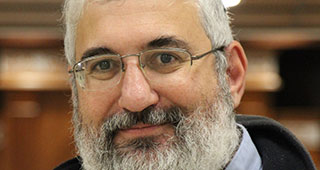Beit Midrash
- Sections
- Chemdat Yamim
- P'ninat Mishpat
The plaintiff (=pl) invented a game and entered an equal partnership with the defendant (=def) to sell its rights to a company. Def was to market the game to a specific international company, whose CEO is a friend of his. The company ended up rejecting the game. In light of the failure, pl wants to end the partnership and market the game to a smaller Israeli company which requires less marketing for a smaller profit. He is willing to pay def only 20% of profits, as his special value was in regard to that one company. Def responded that he is not responsible for the failure and wants to continue under the original conditions, marketing the product to other large companies.
Ruling: Pl cannot claim mekach ta’ut (misrepresentation) that voids an agreement despite the importance of def’s claim to a strong connection with the company. The relationship seems to exist; the company’s rejection of the product does not disprove that claim. There is also no indication that def’s work was deficient. Even if it was, that would not be grounds for more than possible reimbursement, but not of voiding a properly formed partnership.
Pl’s assertion that he is the sole owner of the product who controls its destiny despite his agreement to share profits with def is wrong because of the following reasons: 1) Def took part significantly in designing the game. 2) Def invested in it. 3) Equal sharing of profits is generally a sign of a qualitatively equal partnership.
Was the agreement binding? A kinyan of the object of a partnership makes the agreement binding, but this does not occur when artisans agree to do work as partners (Shulchan Aruch, CM 176:1-3). There is significant halachic debate as to whether an idea can be owned and traded like an object, but even if it cannot, the Shulchan Aruch (ibid.) brings an opinion that such agreements do not need a kinyan. In general, when two parties intended to have a partnership, it is proper to look for halachic justification of its mechanism (see Maharshach II, 229).
The disagreement over how to market the product at this point resembles the following halacha. If one partner wants to sell fruit immediately and one wants to age it and sell it later for more, we sell it right away (if it is a reasonable time to do so) (Shulchan Aruch ibid.:14). Therefore, since it is easier and reasonable to market it in Israel, pl can do so. There is no indication that the agreement had been to market the product only abroad.
If a party wants to dissolve a partnership for which no set time had been set and it is not feasible to split it, it is sold to a third party and they divide the proceeds (ibid.:16). While it is better to give one an opportunity to buy out his partner (Shach 176:29), this is only if the buying party is willing to pay the full value of half the business immediately.

P'ninat Mishpat (803)
Rabbi Yosef Goldberg
16 - When a Couple Both Want the House After Divorce
17 - Partnership in a Corporate Venture
18 - Securing Confidential Information
Load More

P'ninat Mishpat: Using Car that Was Supposed to be Returned
based on ruling 84065 of the Eretz Hemdah-Gazit Rabbinical Courts
Beit Din Eretz Hemda - Gazit | Av 5785

P'ninat Mishpat: Amounts and Conditions of Payment to an Architect – part IV
based on appeal of ruling 83061 of the Eretz Hemdah-Gazit Rabbinical Courts
Beit Din Eretz Hemda - Gazit | Sivan 5785

P'ninat Mishpat: A Seller with Questionable Rights to the Property – part I
based on ruling 84062 of the Eretz Hemdah-Gazit Rabbinical Courts
Beit Din Eretz Hemda - Gazit | Cheshvan 5786
























